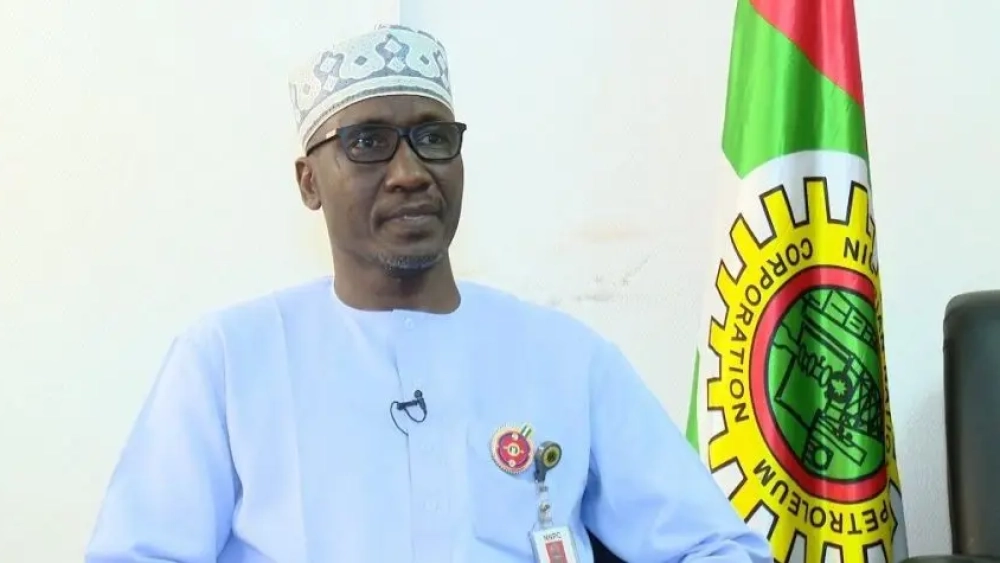TotalEnergies, operator of Oil Mining Lease 58 onshore licence in Nigeria with a 40 per cent interest, together with the Nigerian National Petroleum Company Limited (60 per cent), on Thursday, signed a $550m Final Investment Decision for the development of the Ubeta gas field.
Located about 80 km northwest of Port Harcourt in Rivers State, the OML 58 licence contains two fields currently in production, the Obagi oil field and the Ibewa gas and condensate field.
OML 58 gas production is processed in the Obite treatment centre and supplied to both the Nigerian domestic gas market and to the Nigeria Liquefied and Natural Gas plant.
The Ubeta field discovered in 1964 in the eastern part of the Niger Delta will, once on stream, produce about 350MMScf/day of gas and 10,000 BBLS/day of associated liquids, tapping into the vast gas reserves and contributing towards securing gas supply to NLNG Limited.
At the FID signing ceremony held at the NNPC Towers in Abuja on Thursday, the Group Chief Executive Officer, NNPC Limited, Mele Kyari, said, “We appreciate Mr President for supporting us with the appropriate fiscal environment. The Presidential Executive Order is instrumental to us getting to this significant milestone and we are now seeing the impact of the policy.”
The Senior Vice President of Africa, Exploration & Production, TotalEnergies, Mike Sangster, said, “Ubeta is the latest in a series of projects developed by TotalEnergies in Nigeria, most recently Ikike and Akpo West.
“I am pleased that we can launch this new gas project which has been made possible by the government’s recent incentives for non-associated gas developments. Ubeta fits perfectly with our strategy of developing low-cost and low-emission projects, and will contribute to the Nigerian economy through higher NLNG exports.”
The Minister of State for Petroleum Resources (Oil), Heineken Lokpobiri, said the government has rekindled investor confidence in the oil and gas industry, assuring Nigerians that more investments are on the way.
The Minister of State for Petroleum Resources (Gas), Ekperikpe Ekpo, said the project is a testament to the effectiveness of the government’s policies aimed at creating a conducive environment for investment in the gas sector.
The Ubeta gas condensate field in Port Harcourt, according to partners in the deal, will be developed with a new six-well cluster connected to the existing Obite facilities through an 11km buried pipeline.
Production start-up is expected in 2027, with a plateau of 300 million cubic feet per day (about 70,000 barrels of oil equivalent per day including condensates)
Gas from Ubeta will be supplied to NLNG, a liquefaction plant located in Bonny Island with an ongoing capacity expansion from 22 to 30 metric tonnes per annum, in which NNPC holds a 49 per cent interest.
Ubeta is a low-emission and low-cost development, leveraging OML 58 existing gas processing facilities. The carbon intensity of the project will be further reduced through a 5MW solar plant currently under construction at the Obite site and the electrification of the drilling rig. TotalEnergies is working closely with NNPC to enhance local content, with more than 90 per cent of man-hours which will be worked locally.
“The Ubeta FID justifies the effort invested by NNPC, with unyielding executive support, into tackling the underlying reasons that have plagued the attractiveness of the Nigerian oil and gas industry to foreign investors in recent years.
“The Ubeta project has a robust Nigerian content plan and is poised to stimulate economic activities, create job opportunities, and create significant value for stakeholders,” NNPC stated.
The Special Adviser to the President on Energy, Olu Verheijen, said the Ubeta project is a prime example of the kind of investment that the government’s recent reforms aim to attract.
She stated that 76 per cent of Nigeria’s gas reserves remained underdeveloped and 50 per cent of this was described as non-associated has.
“We recognised the urgency of closing this gap through our assessment of the Petroleum Industry Act and the new directives, signed by President Bola Tinubu to strengthen the PIA.
“Our approach was to respond with data-driven policies, to reclaim Nigeria’s position as a top destination for returns on investment and ease of doing business, as well as attract new investments, revive dormant ones, and safeguard the industry while creating value for sustained impact for Nigerians.
“The Ubeta Final Investment Decision also aligns with Nigeria’s overall energy policy which emphasises the development of the gas sector to diversify the country’s energy mix, reduce flaring and promote cleaner energy sources. The project also has a strong focus on supplying gas to the domestic market and NLNG train 7.
“Additionally, this project will bring sustainable prosperity through strategic and structured community economic empowerment. Overall, we are positive that projects like this will boost confidence and bring more investments to the Nigerian oil & gas sector,” Verheijen stated.
She explained that the milestone FID was an affirmation of growing investors’ confidence in the economy and aligns with the recent Presidential Directives on Gas.
According to her, the project highlights a commitment of $550m to extract 900 billion cubic feet of non-associated natural gas from OML 58, adding that upon its completion, the Ubeta project would provide 350 million standard cubic feet per day of gas, primarily earmarked for Nigeria’s domestic market and to augment the operational capacity of NLNG Train 7.
In December 2023, Tinubu endorsed three presidential initiatives to revitalise investment in Nigeria’s oil and gas sector, resulting in this $550m investment.
The directives include initiatives to promote fiscal incentives for gas utilisation projects, enhance the competitiveness of local content, and streamline contracting costs to global standards.


Leave Your Comment